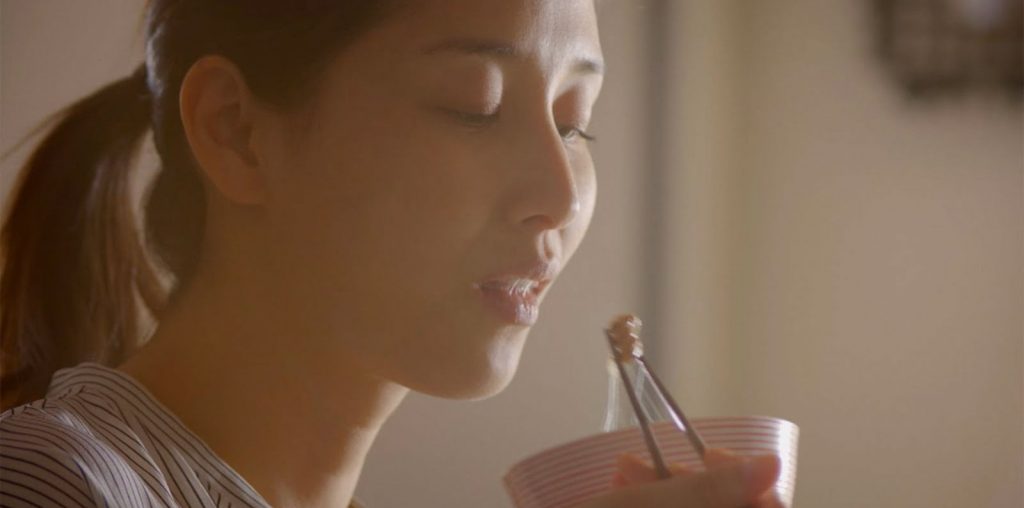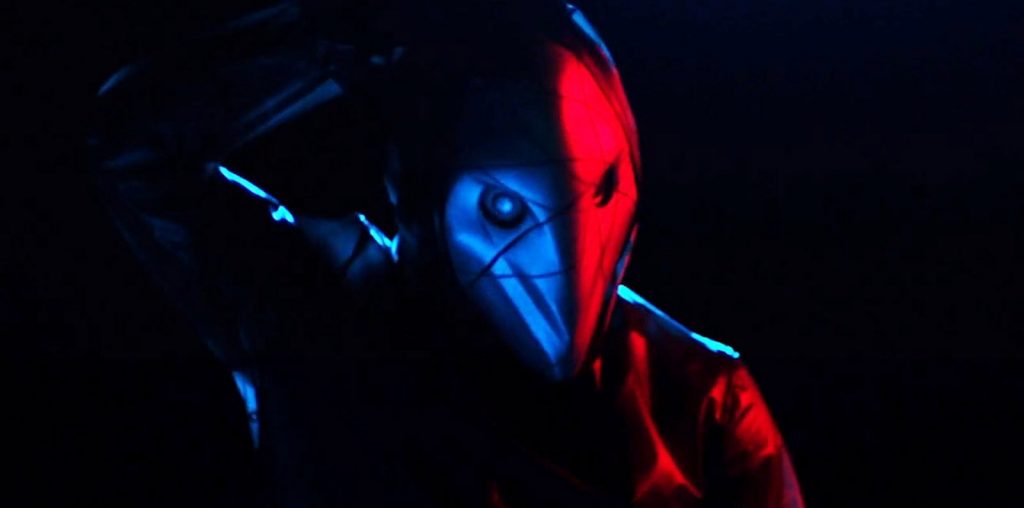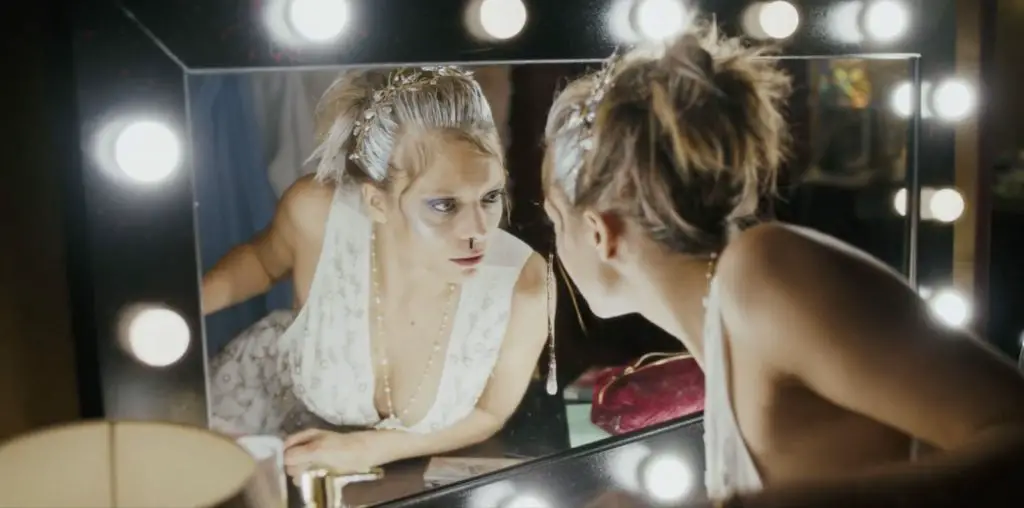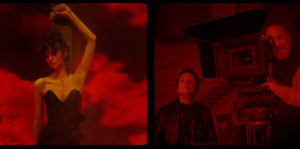
The story is told primarily in split-screen, with its freeform pacing often reminding me of Andy Warhol and Paul Morrissey’s 1966 feature, Chelsea Girls. Though Noé’s experiment is thankfully more concise, with all of its elements congealing into a rough-seamed experience compared to the absolute pigsty of Warhol and Morrissey’s three-hour meander through nothing. What starts as a conversation about witches between leads Dalle and Gainsbourg — both in historical contexts and their depictions in film — quickly evolves into a voyeuristic traipse through hysteria, vulnerability, and passion (or lack thereof).
I love Lux Æterna for its tongue-in-cheek sense of humor battling against a cynical view of modern moviemaking while also singing romantic praises of the sacrifices that creatives make to achieve exceptional poetic and entertaining cinema. Though my immersion is slightly undone by Jerome Pesnel’s earlier editing when transitioning between camera angles or alternating perspectives within a scene. It often cuts to a second of black between shots, and the punctuation almost always interrupts the flow. It doesn’t ruin anything (like the flash edits and audio pops in Morrissey’s Trash and Heat), but it keeps it from being completely immersive.
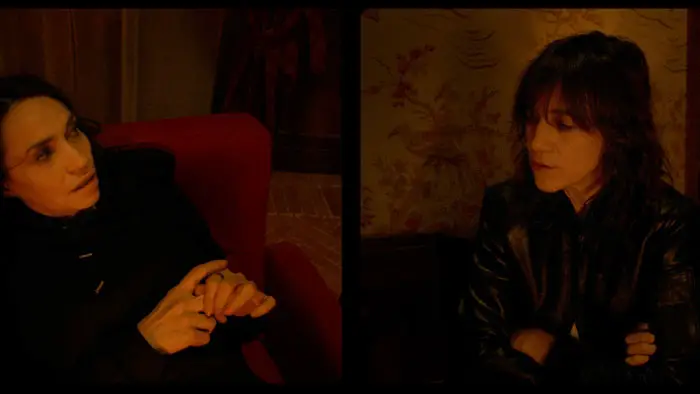
“I love Lux Æterna for its tongue-in-cheek sense of humor battling against a cynical view of modern moviemaking…”
On top of its audio/visual onslaught, the musical arrangement is hallmarked by a constant motif of Frédéric Chopin’s “Piano Sonata No. 2,” and usage of the iconic “Dies Irae” section of Giuseppe Verdi’s “Messa da Requiem” during the final sequence. Each musical selection is appropriate and welcome, given the context of the scene that the film-within-a-film production is shooting. The movie ends with uncertainty as to what is happening in reality and what has stepped past the line into the realm of pure senses.
Lux Æterna is a story of opposites and contradictions. Its premise and execution can easily dissuade audiences from consuming it, and it is outright physically inaccessible to some. The feature is surely one of the tamer exercises in Noé’s filmography and doesn’t quite punch as hard as I feel the ending had the potential to. While it holds more value for the conversations it will undoubtedly spark between audiences, the thriller still stands as a bold and brash experiment that demands multiple viewings to get the most of its style and themes.
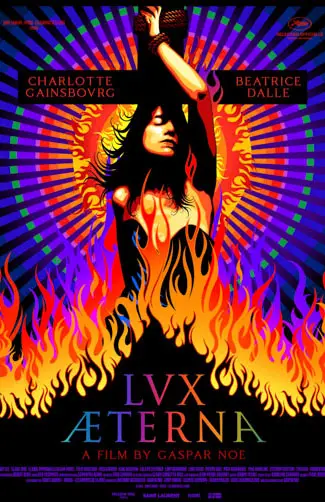
"…one of the few times that the phrase 'assault on the senses' is the most accurate assessment..."
